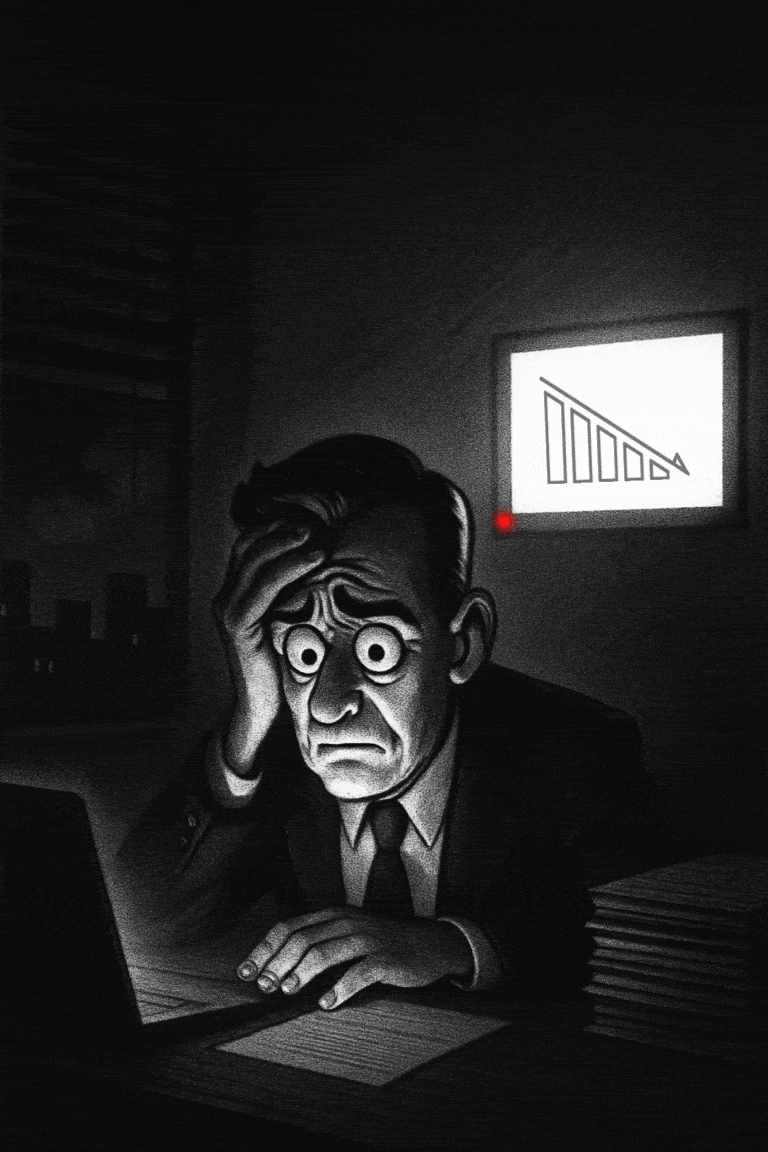
If you’ve ever wondered what it feels like to be inside the corporate equivalent of a five-alarm fire, look no further than the executive suites of UnitedHealth Group. Having been a part of many efforts to deal with potentially reputation-destroying crises during my two decades in the health insurance business, I can assure you it is all hands on deck at UnitedHealth these days.
But as stressful as the problems my former colleagues and I had to deal with over the years, none of them rose to the level of epic awfulness UnitedHealth’s execs are having to grapple with today. They are under immense pressure to pull off the seemingly impossible: returning to Wall Street’s good graces without further angering and alienating all of the company’s other stakeholders. You should be happy that you are not a part of UnitedHealth’s leadership team right now.
UnitedHealth Group — the $400 billion behemoth that’s swallowed more of the American health system than any other company in history — is now facing a reckoning it can’t ignore. It’s coming from every direction: the U.S. Department of Justice (under President Donald J. Trump), Congressional Republicans and Democrats, state lawmakers and regulators, the media, physicians, hospital administrators, tens of thousands of Americans on the internet sharing their own personal UnitedHealth horror stories, and, most importantly for the C-Suite, enraged investors who’ve lost hundreds of billions of dollars in recent months.
So what’s it like behind closed doors? I know exactly what that looks like. And I can guarantee you, the mood is grim and the stress level is off the charts. And thats because the incoming is so relentless. Take, for example, today’s story in the Guardian about how UnitedHealth has secretly paid nursing homes to reduce hospital transfers.
Inside the corporate headquarters in Minnetonka, Minnesota, they’ve long had a crisis playbook. Every major corporation does. When I was at Cigna, I helped write it. But even the best playbooks get thrown out when the headlines come this fast and this hard:
-
A criminal DOJ investigation into Medicare Advantage fraud, per The Wall Street Journal
-
Investor lawsuits claiming the company lied about the fallout from an executive’s murder
-
A class-action lawsuit over algorithmic denials of care that allegedly led to patient deaths
-
And the sudden return of former CEO Stephen Hemsley, signaling panic at the top and two likely realities: (1) there is nobody else in the company who could possibly lead and manage this lumbering giant, and (2) no sane person outside of the company would dare jump into that corporate swamp to wrestle all those alligators. To even get Hemsley (who, by the way, was among four UnitedHealth executives sued last year for alleged fraud and insider trading) to take on the CEO role again, the board had to throw an additional $60 million at him. You can be sure the company is also offering generous retention bonuses to a handful of other executives to keep them from jumping ship.
By now, UnitedHealth’s “war room” isn’t a metaphor. It’s a full-time command center, likely operating 24/7. Legal counsel dialed in. High-priced crisis PR firms engaged. External surveillance firms combing the internet, tracking every media mention, Tweet and whistleblower post — heck, I’m sure they’re reading this right now. AI tools can now flag dissent from thousands of patients or doctors in seconds. And UnitedHealth, with all the billions we as taxpayers and patients send the company every month, can afford whatever tools they see fit.
A company this massive doesn’t rely on a single law firm. Think multiple contracts on retainer — defense counsel for DOJ, securities litigation specialists for the investor suits, M&A counsel for merger troubles, and regulatory teams for CMS and the FTC. The head of government affairs has probably hired an additional army of lobbyists in DC and the states and sends frequent updates to all the other war room generals to keep them apprised of what the company’s friends and enemies in politics are saying and doing. (When I was at Cigna, my team and I wrote the talking points for our lobbyists and doled out campaign checks to candidates to buy as much influence as possible, so I know how this game is played.)
And the PR shops? They’re on retainer, too. When media scrutiny gets hot, insurers hire ex-journalists and former political comms experts to pre-spin stories, monitor reporters and ghostwrite op-eds for the company’s bought-and-paid-for allies to try to shift the narrative. Don’t be surprised if a few sympathetic “deep dives” on the complexity of Medicare Advantage and other facets of UnitedHealth’s business appear in major news outlets.
I’m sure widely read political newsletters inside the beltway will soon be brought to you by UnitedHealth, and feel-good ads will soon follow regulators, judges and potential jurors all over the internet.
But you know what they likely are not devoting money or resources to? Patients. I’d be willing to bet there has not been a single conversation in that war room about how to stop denying patients the care they need or about how to lower costs for patients by spending more money on their care. Doing that would make Wall Street even madder.
Make no mistake: executives are not okay. These aren’t just long days — they’re relentless marathons of damage control. Internal briefings. Legal prep. Media strategy calls. Board pressure. Shareholder updates. Rehearsals for testimonies that can’t afford a single misstep.
Many of the executives aren’t going home. I’ve seen it — corner offices become crash pads; power naps under fluorescent lights; anxiety meds discreetly popped between meetings. One eye on Slack, one eye on CNBC, praying the share price doesn’t dip another 5% before bagels and veggie cream cheese arrive in the conference room.
And unlike past crises, UnitedHealth just can’t wait this news cycle out.
For all their power and pay, these executives are under intense psychological strain. Many built their careers on promoting the myth that big health insurers, like UnitedHealth, were “streamlining” health care and driving shareholder profits. Now they’re facing lawsuits that allege they used AI to automate suffering. And another, by the company’s own investors, alleging that UnitedHealth downplayed the fallout after one of their own was gunned down on a New York street by a vigilante, just as the company’s investor day was about to start.
These type of things change a person. I genuinely feel for the people that have to work at UnitedHealth right now. I was once in their shoes – and the stress I had to deal with nearly pushed me over the edge. It got to the point that I was afraid to tell people what I did for a living. The money was good, but it had to be to keep my colleagues and me on the team.
I’d bet that some of the executives are likely defensive. Some are furious. Others are quietly looking for exits — early retirements, board seats at safer companies or golden parachutes before the SEC, the DOJ, the FTC and state AGs start asking even more questions.
My take: No matter how much money or spin they throw at it, the foundation is cracking. I think it is the beginning of a full-scale reckoning for the most powerful company in American health care.
What makes this moment different from my time at Cigna is the scale — and the stakes. UnitedHealth is no longer just a health insurance company. It’s a vertically integrated empire that controls doctors, clinics, the pharmacy supply chain, data and payments. It touches nearly every part of care delivery in this country.
The DOJ isn’t just investigating alleged fraud, it’s pulling at a thread that, for example, could unravel how our privatized Medicare system has been exploited for years. A system I once helped defend — and now know must be reined in.
All that being said: The feeding frenzy has barely begun. Just about every pillar of American civil society has started to circle the wounded company. I’m sure fears of company divestments, political concessions and/or criminal liabilities are whispering through halls of UnitedHealth Group’s headquarters. It must be one hell of a place right now. Literally.
RELATED POSTS
View all




